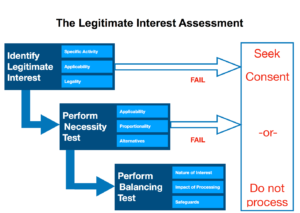FAQ
Welcome to the
FAQ section
FAQ section
You can find answers plus hints and tips
for all of your Data Protection queries
Frequently Asked Questions
The General Data Protection Regulation (GDPR) applies from 25 May 2018. It has general application to the processing of personal data in the EU, setting out more extensive obligations on data controllers and processors, and providing strengthened protections for data subjects. Although the GDPR is directly applicable as a law in all Member States, it allows for certain issues to be given further effect in national law. In Ireland, the national law, which, amongst other things, gives further effect to the GDPR, is the Data Protection Act 2018.
The GDPR defines ‘personal data’ as any information relating to an identifiable person who can be directly or indirectly identified, in particular by reference to an identifier. This definition provides for a wide range of personal identifiers to constitute personal data, including name, identification number, location data or online identifier, reflecting changes in technology and the way organisations collect information about people.
Any organisation that processes the personal data of people in the EU must comply with the GDPR. “Processing” is a broad term that covers just about anything you can do with data: collection, storage, transmission, analysis, etc. “Personal data” is any information that relates to a person, such as names, email addresses, IP addresses, eye colour, political affiliation, and so on. Even if an organisation is not connected to the EU itself, if it processes the personal data of people in the EU (via tracking on its website, for instance), it must comply. The GDPR is also not limited to for-profit companies.
Data controllers are a person or organisation who (alone or with others) determines the purposes for which and the manner in which any personal data are, or are to be, processed. A data controller can be the sole data controller or a joint data controller with another person or organisation. However, when services are provided directly by private hospital, voluntary hospitals, agencies or private contractors, the private hospital, voluntary hospital, agency or private contractor may be the data controller.
Data processors are those that processes personal data on behalf of the controller. This does not include an employee of the controller who processes data during the course of their employment. A data processor can be held liable if they are responsible for a data protection breach.
Processing in relation to personal data is any operation or set of operations performed on personal data including – collecting, recording, organising, structuring, erasing, destroying, altering, combining, disclosing or sharing the data.
“Most of our database is made up of historical quotations or previous customers but under GDPR, just because they have gotten a quote from us or bought from us doesn't actually give us the right to use their data for marketing purposes. Is this correct?”.
Answer: When you originally sold, quoted or marketed products or services did you offer an opt-out at point of sale?
If the answer is yes, you may be able to rely on ‘soft opt-in’.
If you did not offer an ‘opt-out’ then you will need consent. If you cannot reference an affirmative opt-in or consent then you do not have the data subject’s permission, therefore you cannot send marketing emails.
Fig 1: Legitimate Interests Assessment

Remember, it’s PECR (Privacy and Electronic Communications Regulations) that regulates e-marketing NOT GDPR. Legitimate Interests IS NOT a lawful basis for electronic marketing under PECR.
Opt-in has to be specific, informed and freely given and if you are relying on the ‘soft opt-in’ you can only use it for marketing/promotion of your OWN products/services. So an opt-in is the cleanest way to start a new list.
See here some useful links in relation to PECR: Statutory Instrument 336 of 2011 (Ireland) and ICO (UK) Guide to PECR
The GDPR introduces direct obligations and potential liabilities on the Controller AND Processor. The GDPR requires a legally binding contract between the Data Controller and the Data Processor(s).
There are Compulsory details that must be included:
Compulsory terms:
As part of your record of processing activities, it can be useful to document (or link to documentation of) other aspects of your compliance with the GDPR and the UK’s Data Protection Bill. Such documentation may include:
Information required for privacy notices, such as:
Information required for processing special category data or criminal conviction and offence data under the Data Protection Bill, covering:

Services
Innovative, industry leading data protection and information security services that can be Tailored to match your organisation’s requirements and budget.